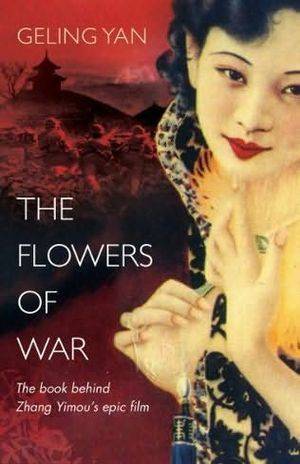

The Flowers of War
by Geling Yan
The powerful Chinese novel about love and war on which Zhang Yimou (Raise the Red Lantern; Crouching Tiger, Hidden Dragon) has based his latest film starring Christian Bale to be released in 2012. This moving short novel is based on true events that took place during the Nanjing Massacre in 1937 when the Japanese invaded the Chinese city, slaughtering not only soldiers but raping and murdering the civilian population as well. It tells the story of an American missionary who, for a few terrifying days, finds himself sheltering a group of schoolgirls, prostitutes and wounded Chinese soldiers in the compound of his church. American priest Father Engelmann is one of the small group of Westerners who have remained in Nanjing, despite the approach of the Japanese. America is not yet in the war and so his church compound is supposedly neutral territory. However, his confidence in his ability to look after the Chinese schoolgirls left in his care is shaken when thirteen prostitutes from the floating brothel on the nearby Yangtze River climb over the compound wall and demand to be hidden. The situation becomes even more intense when some wounded Chinese soldiers appear. Meanwhile Engelmann is becoming increasingly aware of the barbaric behaviour of the Japanese outside the compound walls. It is only a matter of time before they knock on the door and find the people he is protecting. Like Irène Némirovsky's Suite Française, this poignant book looks at the effect upon individuals of large-scale war and tragedy. The characters are beautifully observed. From the naive schoolgirls, the brazen prostitutes and the frightened soldiers to the slightly priggish priest and his resentful Chinese entourage. As the Japanese circle ever closer, the barriers of hatred and prejudice that separate the characters dissolve, and they perform unexpected and moving acts of heroism. Geling Yan, an important Chinese writer, reveals herself to be a master of detail and emotion in this novel. She recreates history as if it is unfolding before our eyes, and writes characters that are so engaging and so rich that we believe in them entirely. This is a novel full of humanity -- at its worst and at its best -- and a fascinating insight into 1930s China.
Release Date:
February 5, 2012

